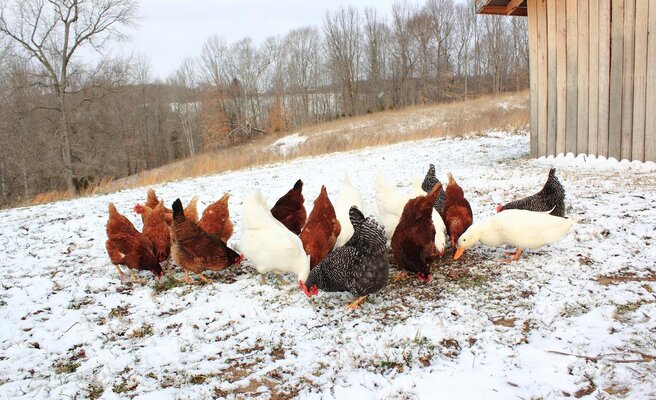FaithArthur123999
Chirping
- Jun 13, 2022
- 125
- 181
- 93
Hey guys! I live in the UK and have been experiencing cold weather the past few days. Last night was -6 Celsius which I havent seen for a long time. Its currently snowing and supposed to be between -6 and -7 tomorrow night. I have 5 ex battery hens and 6 ducks (live separately). I am not worried about the ducks as they seem to be doing okay. However my chickens have not been happy for the past few days, they seems to be very stressed by the cold. They are okay during the day when it warms up but early in the morning, they come out and dont really move. This morning one of the girls became very stressed by the cold and she did concern me but she is okay now. All my hens are very very skinny, and 2 are in moult. My vet believes they are just naturally skinny and small as we have done everything to check illness in some of the hens and nothing has come up. Due to how small and slim they are, I dont think the cold wether is suiting them well. I delivery hot porridge/wheat/corn in the mornings to help perk them up but I am really worried about them. Ive read that I shouldnt bring them in of a night as this can mess up their ability to cope with the cold wether, but where do you draw the line with possible death? They arent as hardy as the ducks and I am scared they will get too cold in the night. They have atleast 10inches of bedding and we have packed it up the sides of the coop walls, we even have blankets over the coop to. We dont have the option of running electric down to them so cant use any type of heaters. Any advice as to wether I should leave them out or bring them in?6q





